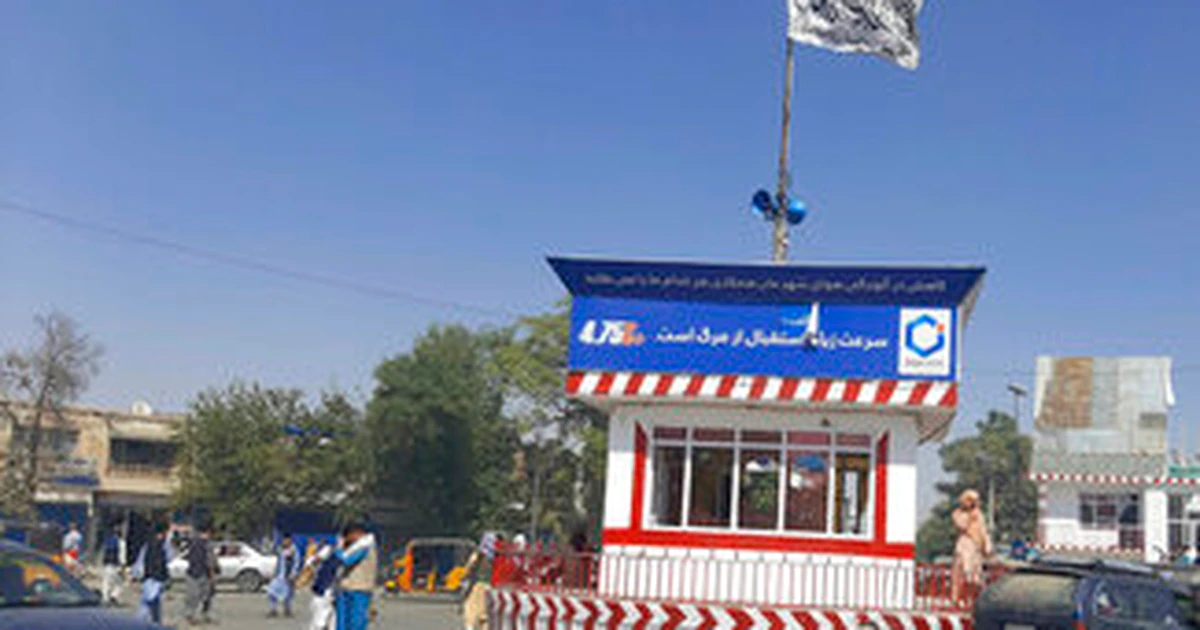
KABUL, Afghanistan (AP) — Taliban fighters seized most of the capital of northern Afghanistan’s key Kunduz province on Sunday, and won a monthslong siege of a neighboring provincial capital — the latest in a series of blows to government forces as U.S. troops complete their pullout after two decades in the country.
Two provincial council members said the Taliban took control of the governor’s office and police headquarters after a day of firefights, as well as the main prison building, where 500 inmates including Taliban fighters were freed.
If Kunduz, capital of the province of the same name, falls, it would be a significant gain for the Taliban and a test of their ability to take and retain territory in their campaign against the Western-backed government.
It is one of the country’s larger cities with a population of more than 340,000, and was a key area defended against Taliban takeover by Western troops over the years.
Councilman Ghulam Rabani Rabani said that fighting was continuing at the city’s airport and other parts of the city. Kunduz is a strategic crossroads with good access to much of northern Afghanistan as well as the capital, Kabul, about 200 miles (335 kilomeeters) away.
Another provincial council member from Kunduz, Mohammad Yusouf Ayubi also said that Afghan forces only control the airport and main army barracks, and that the Taliban control all of Kunduz besides those areas.
A video obtained by the Associated Press showed the Taliban’s white flag flying atop a traffic police booth in Kunduz’s main square.
“The innocent and poor must pay the cost of the war in Kunduz and other parts of the country, both government forces and the Taliban are the enemy of civilians,” said Ayubi. “One can’t provide security and the other doesn’t care about people’s safety,” he added.
The Afghan government in Kabul denies it has lost the northern city, which would be the fourth provincial capital to be largely overrun by Taliban fighters in the last week. Interior Ministry Spokesman Mirwais Stanekzai said Afghan security forces continue to fight and have already retaken some areas of Kunduz from the Taliban, without elaborating.
The Taliban seized Kunduz, at the heart of a major agricultural region near Tajikistan, for around two weeks in 2015 before withdrawing in the face of a NATO-backed Afghan offensive. The insurgents pushed back into the city center a year later, briefly raising their flag before gradually being driven out again.
Also Sunday, the Taliban forces overran Taleqan, the capital of Takhar province which lies next to Kunduz, two provincial lawmakers said. Takhar has particular significance for the anti-Taliban northern alliance fighters who joined the U.S.-led coalition to oust the religious militia in 2001.
Sayed Sharafuddin Aini, a lawmaker form Takhar province said the Taliban managed to take the city in the afternoon after three months of siege during which it took control of all of the province’s countryside.
Another lawmaker from the area, Nazifa Yousefi Beg, said that all provincial officials including the governor, provincial police chief, and provincial council members have been captured in Taleqan, She said she feared for their fates in Taliban hands and urged the government to send troops to retake the city.
The insurgents have been on a country-wide offensive that intensified as U.S. and NATO troops began to wrap up their withdrawal from the country this summer. With Taliban attacks increasing, Afghan security forces and government troops have retaliated with airstrikes aided by the United States. The fighting has raised growing concerns about civilian casualties.
On Saturday, Taliban fighters entered the capital of the northern Jawzjan province after sweeping through nine of 10 districts in the province. Several other of the country’s 34 provincial capitals are threatened as Taliban fighters sweep through large swaths of Afghanistan at a surprising speed.
Earlier last week their fighters captured the ninth of 10 police districts of Lashkar Gah, the capital of southern Helmand province. Heavy fighting there continues, as do U.S. and Afghan government airstrikes, one of which damaged a health clinic and high school.
The Defense Ministry confirmed airstrikes occurred but said they targeted Taliban positions, killing 54 fighters and wounding 23 others. It made no mention of a clinic or school being bombed in its statement. Deputy provincial council chairman Majid Akhund said the facilities had been under Taliban control when they were struck.


Be the first to comment